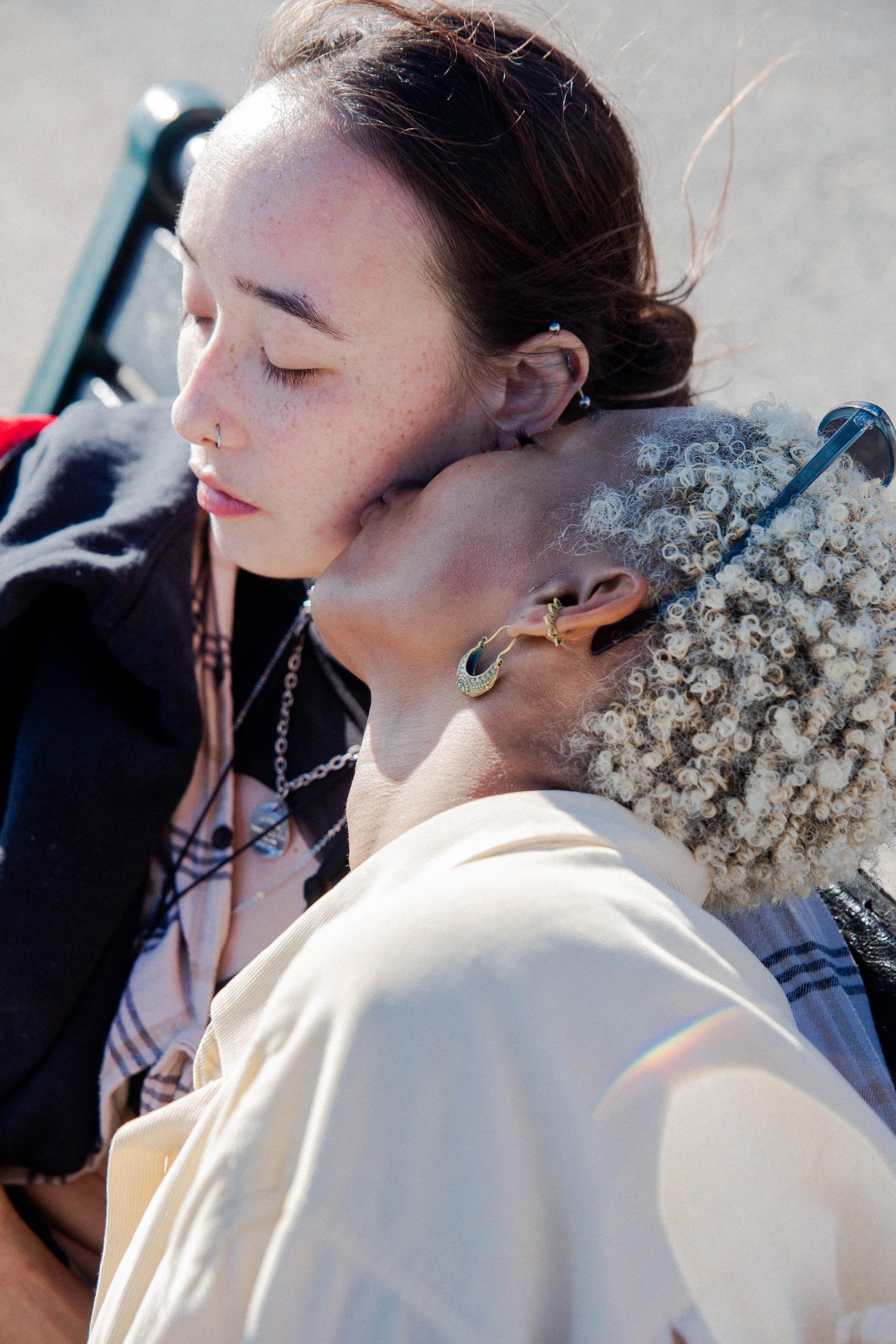Written by Rachel Komich.
Photo by Shingi Rice.
The thing I love most about being queer is that there are no rules. It’s not necessarily that anything goes, because consent, communication, and vulnerability are still key factors. But, queerness exists as another possibility for a life outside of compulsory heterosexuality. When I realized I was queer, I stepped out of a heteronormativity-induced fog. Possibilities for who I love and how I love them became endless, and 5 years later, I learned that this same concept goes for how I choose to stop loving people.
At the beginning of April, my partner and I split up. We had been living together for the past three years after two years of long-distance. One morning in early April, we sat at our second-hand kitchen table eating a silent breakfast. We had been arguing more and more and noticed that we had grown in ways that no longer complimented our union. We realized that something needed to change, but we weren’t ready for everything to change. I wasn’t ready to move, I wasn’t ready to split up our dogs, and I wasn’t ready for the anger, resentment, and separation that I thought would come.
When I think of breakups, what comes to mind are all the examples I see in movies. There’s Eternal Sunshine of the Spotless Mind, the infamous breakup movie of the early 2000s, Midsommar (hello, revenge), and the recent Marriage Story. All these movies included jilted, resentful couples who part ways in anger. These heterosexual couples are quick to toss their relationships aside for something newer and often easier– being alone, a new beau, a fresh start. For queer folks, community and family are not always at the tips of our fingers. We know that relationships are built and maintained in ways that heteronormative relationships often do not. I wanted to grow as my own person and revel in my self discovery and I wanted the same thing for my ex-partner.
To end the relationship was something we decided together, and while we both knew things were going to change, we both decided to commit to still being in each other’s lives.
The night of the breakup, my then-partner and I sat on our couch, exhausted from the day and the build up of this moment. We both knew it was over. We processed, we cried, and then we watched a movie and spooned. To end the relationship was something we decided together, and while we both knew things were going to change, we both decided to commit to still being in each other’s lives. We began to learn how to uncouple.
Queer uncoupling, or detachment from a romantic partner, means the gaining of independence. What does that look like when you are no longer partners, but still live together?
What the movies don’t tell you is about all the time in between. Being queer, to me, means that my relationships can look like whatever I and the other person in them want them to look like. There’s so much room for platonic intimacy, vulnerability, transformation, and ambiguity.
We wanted to develop a new kind of intimacy while detaching from what no longer served us. We began to learn how to be friends, roommates, and independent people.
My ex-partner and I have been living and moving through that ambiguity for the past several months. We still lived together because we felt that grieving the relationship together would allow us to have a more solid friendship in the future. We wanted to leave no drop of anger unspoken for. I knew that I still wanted to ask her about her day and tell her about mine. I wanted to see her meet and love new friends and partners, and see where her career would take her. We wanted to develop a new kind of intimacy while detaching from what no longer served us. We began to learn how to be friends, roommates, and independent people.
For starters, we began asking each other if every kiss was wanted, every touch was possible. We slowly started spending less time together. Eventually, we slept in separate bedrooms, as we had chosen to have separate bedrooms in the beginning to maintain space and a healthy polyamorous dynamic, though we hardly used them before the split. These were conscious boundaries we created together, to move past the interdependence we had built over the years. We started sharing our plans, plans we made for ourselves no longer including the other person romantically at our side.
It’s about seeking a better future for the relationship, whatever that may look like.
There isn’t a queer uncoupling guidebook or zine to go to. There are no movies to watch or shows to binge to guide us through this transition. It’s about listening to our intuition, accepting the other person’s boundaries and needs, and doing what feels good. It’s about seeking a better future for the relationship, whatever that may look like.
Sometimes an open and shut breakup is necessary and healthy, but turning towards tradition just because it’s the only visible option did not make sense to me. We needed to be our truest selves in a way that was limited by our romantic arrangement, so we adjusted. We saw an opportunity to remind ourselves what living up to our queerest potential could look like. We took it.
About The Author
Rachel Komich is queer, nonbinary poet from Ohio currently living in Miami, Florida. They are an archivist and one of two founders and editors of Butter Press, a literary magazine centering queer, trans, and non-binary voices.
Follo on Twitter: @rachelkomich.

